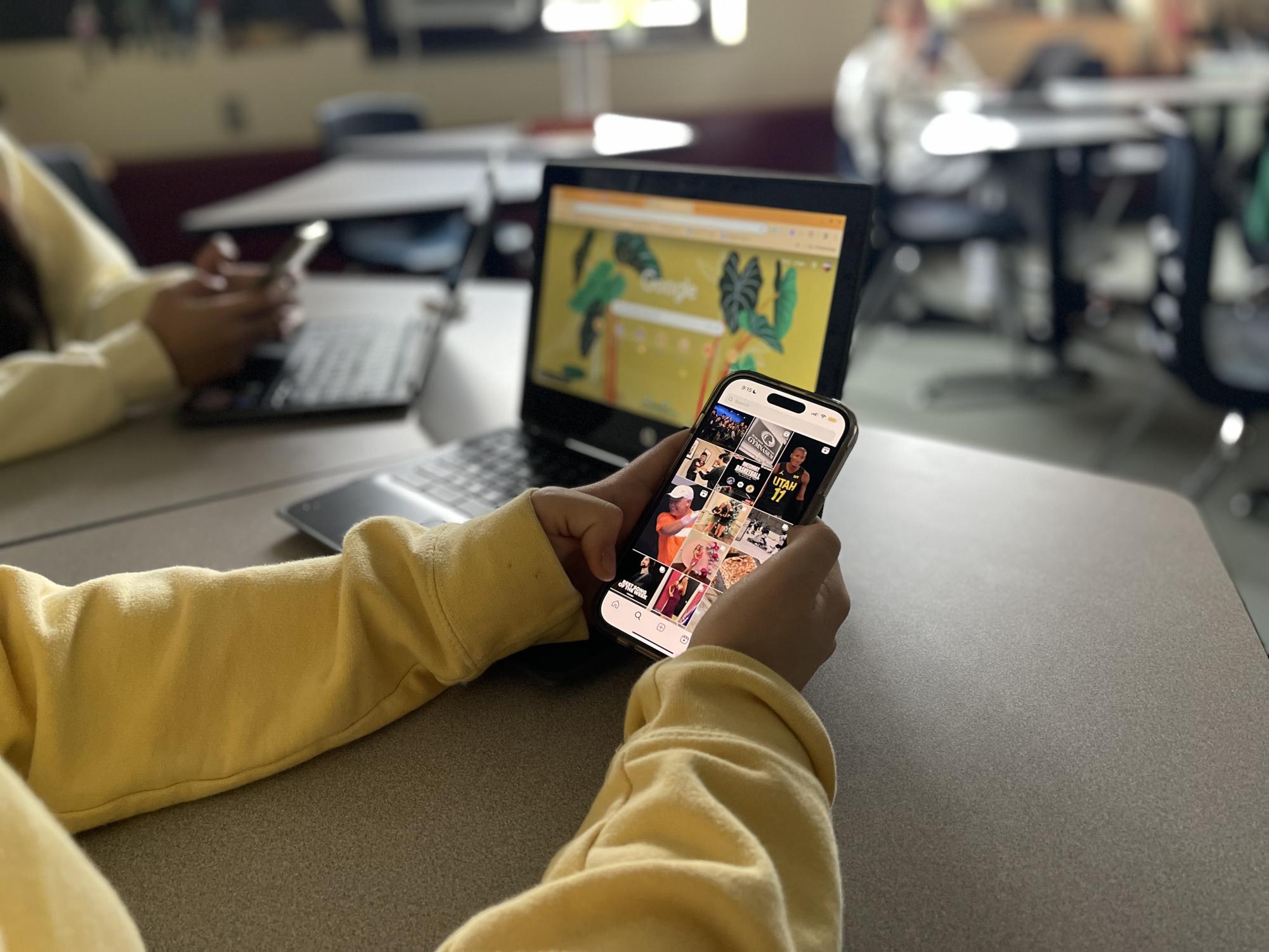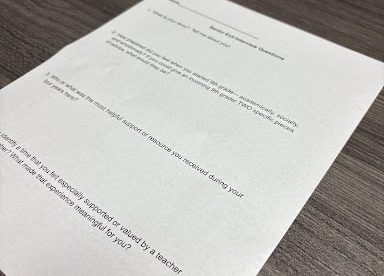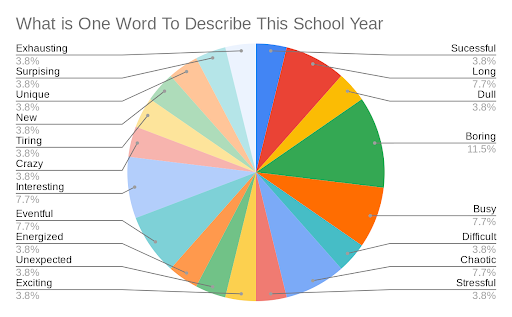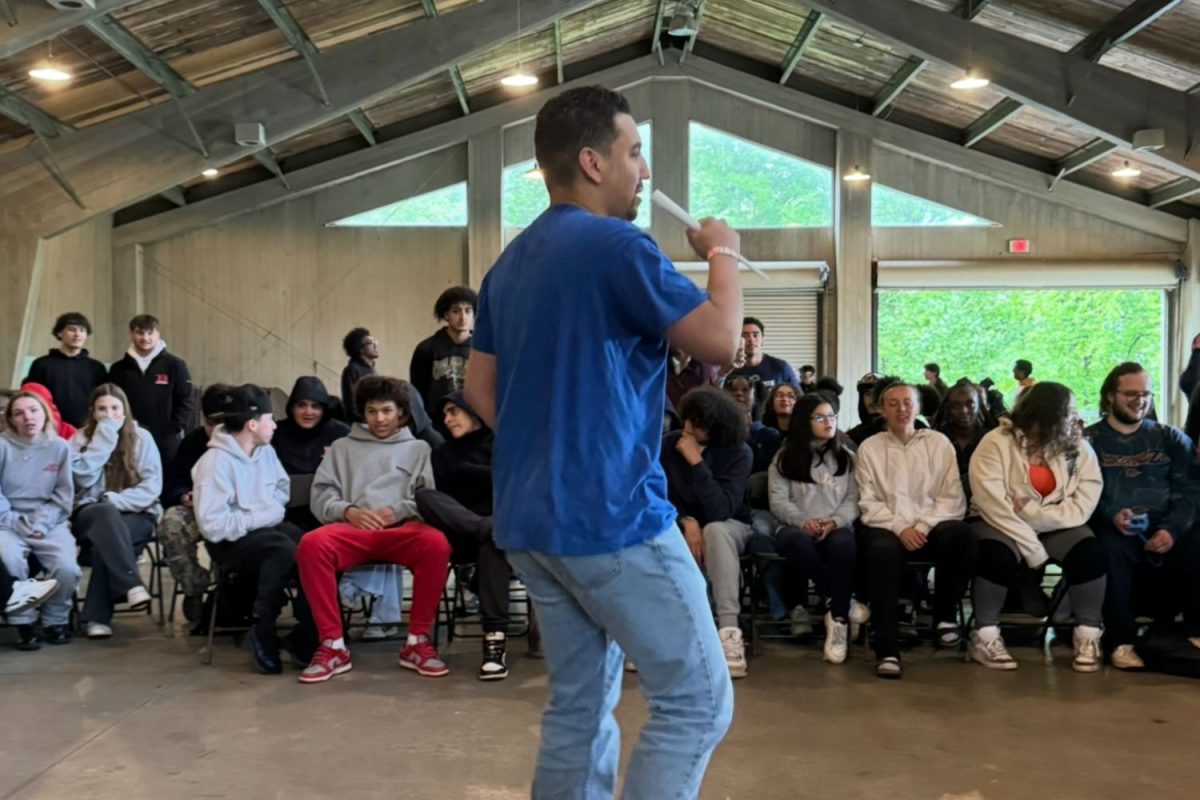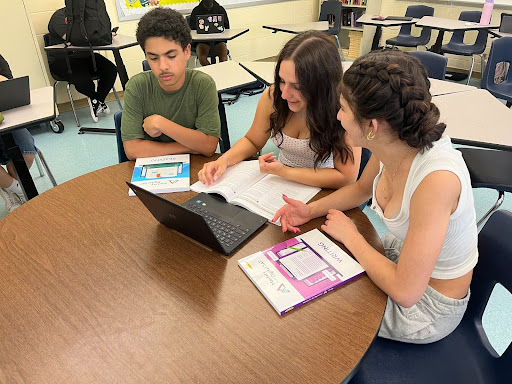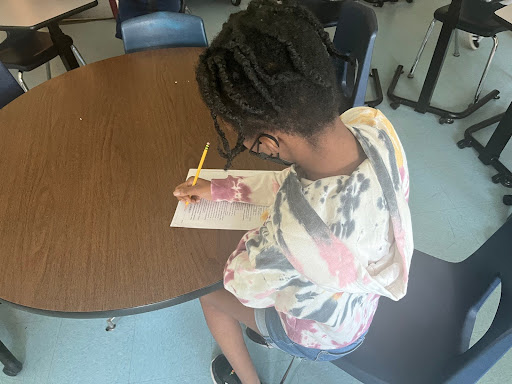Since 2020, the use of social media has increased, and so have distractions in the classroom. This has catalyzed controversy around the nation about whether cell phone use in schools should be banned.
COVID-19 had more than just an effect on people’s health. It impacted the use of cellular devices like smartphones, AirPods, smartwatches, and iPads. The virus led to a global pandemic that removed in-person interaction and forced people to become dependent on technology.
The easy access to social media through technology allowed relationships to remain intact, but impaired people’s ability to socially interact without a screen in between them.
“I don’t totally blame students for being distracted because I know how tempting it can be to look at your phone, especially if you’re in a class that you’re not totally interested in; there’s a lot more exciting stuff happening on a phone,” said English teacher Mrs. Flachsbart.
The question becomes should students be able to make these decisions about their personal technology for themselves, or should school districts be able to mandate how and when students can use their personal devices.
“In the real world, you have to time manage and make your own choices on what’s a healthy relationship with your phone and social media. It’s your responsibility to help kids advocate for themselves. They need to be making the choices on their own about when it is appropriate to check social media and when it’s not,” social studies teacher Mrs. McGinn commented.
However, local schools like Ellington High School, Windsor Locks High School, and Illing Middle School in Manchester are joining other schools nationwide in creating cellphone bans in the classroom.
The principal of Ellington High School, John R. Guidry, sent a letter out to families stating that effective January 25, 2024 students will not be permitted “personal electronic devices” in a classroom setting. Students are now required to place their cell phones in phone holders located in classrooms, and then tuck all remaining electronic devices in their backpacks.
Students will be able to retrieve their phones after the class period has finished. If a student has to leave the classroom during a class period, they must leave their phones in the phone holders unless “they are going to the main office, school counseling, or the nurse’s office.”
Guidry stated that “personal electronic devices may be used during passing time, during lunch period in the cafeteria, and regular (non-structured) study halls, and may be used in the library unless the library attendant has asked students to stow them in their backpacks.”
Principal of Windsor Locks High School, Rebecca Bissonnette, has a stricter outlook on the situation that was initiated on October 25, 2021. Bissonnette said that “cell phones are not necessary during instructional time, and will no longer be permitted from the beginning to the end of each class period. Students will be asked to keep phones in their backpacks, or lockers, or be collected at the start of class.”
She continues the letter to families with consequences each time a student is caught with any personal device during class. In the first offense, “the teacher will place the student’s device in an envelope and have security bring it to the main office. The device will be returned to the student at the end of the school day.” In the second offense, “the teacher will place the student’s device in an envelope and have security bring it to the main office. The device will be returned only to a parent or guardian. The student receives office detention.” In the third offense, “the teacher will place the student’s device in an envelope and have security bring it to the main office. A family meeting will be scheduled to devise a plan for the student. The student receives one day of ISS.”
The recognition that, as a society, we are setting kids up for failure regarding their mental health, and also in the classroom, with the allowed and consistent use of cellphones, has become so widely spread that, “In 2020, government data found almost 80 percent of schools banned cell phones for nonacademic purposes, but enforcement varies widely around the nation.”
Some schools in America have purchased Yondr pouches, which are magnetic locking cell phone pouches. San Lorenzo High School in the Bay Area of California, uses the Yonder pouches to ban cell phones and, “has seen noticeable improvements in grades, fewer disciplinary issues, and a change in how students are interacting with one another.” Yondr pouches were also announced for launch at Manchester Middle School and in Torrington, CT, which has been reported to be successful.
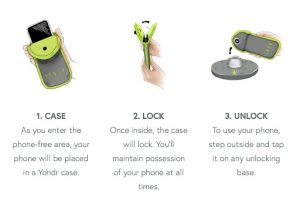
“This year is the first year that I collect students’ phones at the start of class because that seems to be the only solution. In the past, when I’ve had students try to regulate their screen time themselves I find that a lot of students end up using their phone even when I ask them not to,” Mrs. Flachsbart said.
Since she started collecting cell phones, she has noticed “learner task grades are higher,” and her “classes are a little louder because people don’t just quietly go off on their phones; it’s nice to see my students’ faces and hear them talk more.”
However in my opinion, especially while currently a student, I believe that a student’s relationship with their cell phone should be monitored and controlled by that individual, not an education system. A child’s education only needs to be provided, and what they choose to do with that opportunity is solely up to them. Taking away a cell phone from a student isn’t going to ensure that they are going to truly listen and retain the information that is being put out in the classroom. Students who care about their education can make decisions on their relationship with their cell phones based on what’s best for their learning. And the students who don’t have an interest in continuing education after High School have the same option.




